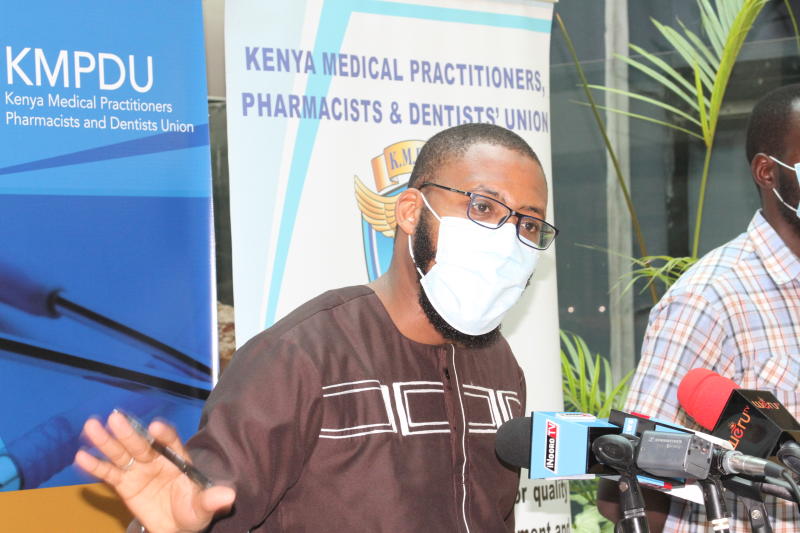
Kenya Medical Practitioners and Dentists’ Union acting Secretary-General Chibanzo Mwachonda (pictured) yesterday announced that he had tested positive for Covid-19, becoming the latest healthcare worker to contract the disease.
Uncover the stories others won’t tell. Subscribe now for exclusive access
- Unlimited access to all premium content
- Uninterrupted ad-free browsing experience
- Mobile-optimized reading experience
- Weekly Newsletters
- MPesa, Airtel Money and Cards accepted